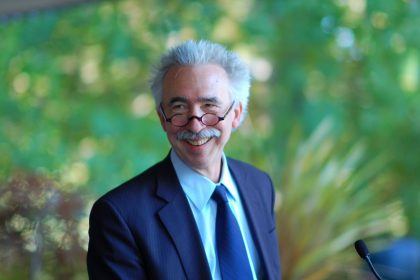
A free-wheeling discussion with Prof. Nicholas Dirks, Honorary Pro Chancellor of SRM University, AP- Amaravati
“Liberal Arts education can easily claim to be the oldest education stream in history,” elborates Prof. Nicholas Dirk, American academic and the former Chancellor of the University of California, Berkeley who has been recently appointed as the Honorary Pro Chancellor of SRM University, AP – Amaravati.
While content may differ between countries and institutes, it is widely agreed that Liberal Arts education at the core refers to matters not relating to the professional, vocational, or technical curriculum. Clearly it offers opportunity for deep study and specialisation to anyone interested in these fields. In that case, one would be tempted to ask ‘What is the importance of Liberal Arts for a person interested in pursuing a conventional career track?’
The answer is ‘a lot’.
Irrespective of the field, all education streams have a common thread– learning problem solving skills. How do subjects like literature,art, history, music, philosophy – come into the problem-solving situation? In several ways:
New age problems; new age solutions: markets, businesses, teams….no one operates in silos anymore. Managing diverse stakeholders, effective collaboration, and genuine out of the box thinking skills are not just good to have but essential prerequisites for success in the modern world no matter what field you work in. Courses that emphasize the analytical skills that were hitherto favoured often run counter to the development of these kinds of creative skills. Liberal Arts courses try to provide alternative perspectives, which helps to train students in thinking about multiple possibilities. The Liberal Arts courses provide a foundation for education that has benefited even Nobel laureates in science and economics, and prize winners in the arts andhumanities.
The importance of ethics: The 2008 financial crisis, banking scams, NPAs, corporate frauds, stock market scandals….all these are a reflection of the growth of greed and ambition and the decline of values and morality. Some, though not all, of the blame can clearly be ascribed to the focus of professional education on cold analytical skills, which make the student less sensitive and open to others’ perspectives. Liberal Arts by definition involves instruction that amalgamates diverse perspectives and moreover also helps students to learn from fields like history and philosophy about human nature and human follies. This can potentially help them to think more ethically about today’s issues.
Dealing with change: Liberal Arts entails taking both a broad cross section of courses. Inmany cases, the curriculumincludes courses and perspectives that benefit students no matter what the area ofspecialization. The Liberal Arts therefore assure that students not onlyhave achieved mastery of a particular field but have a sophisticated andwide exposure to subjects with the additional value of “learning how tolearn” across a wide range of fields. At a time of massive change in oursociety, economy, and technology, this type of education and training can provide a vital edge to professionals.
The importance of Liberal Arts becomes even greater for a country like India. Besides being one of the fastest growing economies of the world, it is also home to one of the most dynamic societies. Liberal Arts courses designed at designed at School of Liberal Arts and Basic Sciences (SLABS) of SRM Amaravati will help the country to build on its success in analytical fields such as Information Technology and Engineering by bringing a dose of creativity and innovation across many disciplines.
Inviting applications for Class 2018-2021 now. To read more, visit: https://srmap.edu.in/

